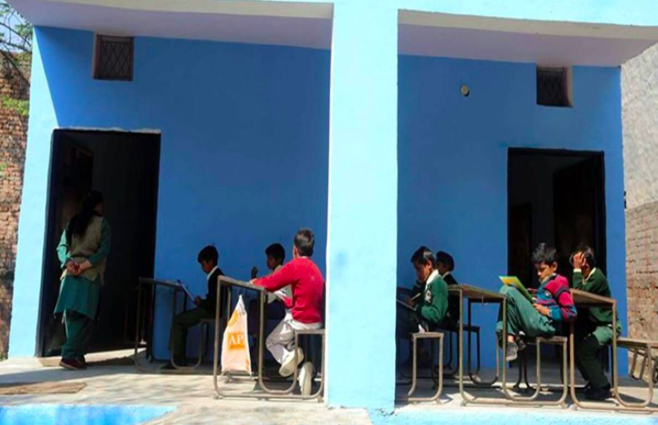Frontlist | Union Budget to reform school education in India : Modi
Frontlist | Union Budget to reform school education in India : Modion Jan 06, 2021

Union Budget 2021 Expectations for Education: The Budget 2020 has seen an increase in the allocation for the education sector by 5 percent to Rs 99,311.52 crore in FY21. Out of this amount, Rs 39,466.52 crore has been allocated for the department of higher education while the school education and literacy department was given Rs 59,845 crore.
Union Budget 2021-22 Expectations for Education: As Finance Minister Nirmala Sitharaman is all set to deliver Union Budget 2021 speech on February 1, education experts are hoping for a higher allocation for the Education Budget 2021. The upcoming Union Budget will be the first one after the introduction of National Education Policy 2020 (NEP 2020), so there are expectations and hope that the Narendra Modi government may make several significant announcements and took measures in Budget 2021 for the transformation of the education sector in India. The NEP 2020 focuses on bringing back dropouts to schools and emphasizes foundational literacy and numeracy, no rigid separation between academic streams, extracurricular, vocational streams in schools across the country.
“The new National Education Policy has provided a particularly good foundation for major reforms in education. In the coming Budget 2021, India can take strong steps to achieve the objectives of the policy of access, quality, research, and innovation. Global quality standards require a sound investment which is possible either through philanthropy, private investments, or FDI. Private investments are not allowed in mainstream education. FDI has been in the discussions but has not been implemented yet for education. This has put limitations on inviting top talent to teach in educational institutions. FDI and domestic investments will also ensure a robust governance mechanism to prevent pilferage and superficial compliance that we observe in the sector,” said Sahil Agarwal, Co-Founder, and CEO, Rishihood University, Sonipat.
“A significant portion of our public spending on education goes to school education. There are several research findings regarding the inefficiencies in the primary and secondary schools in the public education system, which is in stark contrast when we compare their quality to public institutions in higher education. Taking forward the principles of direct benefit transfer, India should run a pilot on voucher system where the government can provide money to the parents for sending their kids to any school, be it public or private. That will reduce the number of low-quality schools and encourage good schools to do even better. The research on the voucher systems suggests that it will save considerable money to the exchequer. Countries like the USA and Sweden have already implemented such a system. A pilot project in India can help us to gauge its utility,” Agarwal said.
Budget 2020 has seen an increase in the allocation for the education sector by 5 percent to Rs 99,311.52 crore in FY21. Out of this amount, Rs 39,466.52 crore has been allocated for the department of higher education while the school education and literacy department was given Rs 59,845 crore.
“As per the NITI Aayog recommendation, the funding proposed in the education by the center was Rs 99,300 crore in Budget 2020-21. This funding needs to be increased by 8-10 per cent considering the need for robust research & development infrastructure in the field of education. The government needs to provide financial impetus to the private universities to create an unshakable commitment to foster a diverse and inclusive community of learners, driven by values and energized by the meritocracy setting a new benchmark in Research & Development. Increase the proportion of scholarships, incentives, and grants for students involved in entrepreneurial activities like start-ups, developing innovative products or services to fulfill the dream of our Prime Minister Narendra Modi’s Atmanirbhar Bharat,” Ketan Marwadi, President, Marwadi University (Rajkot) said.
“The inclusion of GST has been a bigger challenge for emerging private universities. Reforms in terms of GST credit inputs on infrastructure developments will undoubtedly facilitate the learning environment on campuses should be considered in the upcoming budget. Providing GST input credit to private institutions for upgrading infrastructure facilities will not only assist in leveraging the intellectual bandwidth but also the emotional bandwidth of students and faculty communities,” Marwadi said.
“Educational institutions, especially schools are struggling to adapt to technological advancements that are required to provide uninterrupted delivery of education. I feel that the only reason for this is that the online methods of learning were a sudden introduction to both teachers and students. For Indian Education System, it was unfortunate that the system was not ready as many corporates were and could not adapt to LFH (Learn From Home) effectively and faster, but at the same time, it was a chance to assess its capabilities and strength,” Abhishek Mohan Gupta, Pro-Chancellor, Jagran Lakecity University (Bhopal) said.
“Budget 2021 should have decisions based on the assessments made in the last 10 months of shutdown. The reason is that Online Education is here to stay, and Blended Learning is going to be part of the curriculum. The major block to adapt to the new normal is the availability of funds. We expect that the government will try and strengthen the education sector by promoting foreign direct investments (FDI) and opening the ECB (external commercial borrowing). There should be Fund support provided to enhance the skill development capabilities at the mass level via quality infrastructure for ‘Faculty Training and Research’. This will effectively improve teaching methods. There should be non-monetary recognition as well as monetary incentives to help attract highly educated and experienced professionals from various industries,” Gupta said.
“Schools and Universities in Tier 2 and 3 cities are the backbone of the Indian Education System. The government should focus more on funding and strengthening them. Many institutions in these regions only focus on Tech and Medical courses whereas we have seen that there is a huge demand for Liberal courses like Journalism and Communications as well. We expect the government to support high-quality labs providing practical experiences to give globally benchmarked exposure in these streams. The lab equipment and related software are expensive. With a Blended Learning model, another cost for Cloud-based labs is also added. We expect the Government to look at these parameters and take the decisions accordingly,” Gupta said.
Source: Financial Express
Budget
Education
Expectations for Education
Finance minister
Finance Minister Nirmala Sitharaman
Frontlist Education
Frontlist News
Literacy
School
Schooling
Tech
Union Budget

.jpg)
.jpg)
.jpg)
.jpg)
.jpg)

.jpg)
.jpg)
.jpg)
.jpg)
.jpg)


_(1).jpg)
.jpg)











Sorry! No comment found for this post.